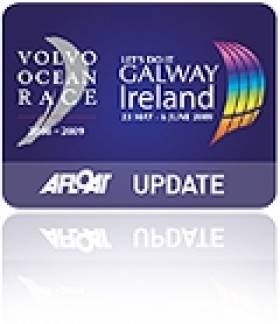Displaying items by tag: Maurice Keller
Volvo Ocean Race in Galway Will See Irish Food in Focus
#VOLVO OCEAN RACE - Top chef Maurice Keller was in Abu Dhabi last week to fly the flag for Irish food at the third stopover of the Volvo Ocean Race, Waterford Today reports.
Keller spent a few days away from Waterford's Arlington Lodge to join members of Good Food Ireland, Tourism Ireland and Irish embassy staff for a special 'Ireland Day' at the VOR Village.
The initiative was designed to promote Ireland as a prime tourist destination ahead of this summer's Volvo Ocean Race visit to Galway.
And food will play a major role in efforts to attract visitors to the finish line in Galway this July, according to the Limerick Post.
Foodies from across the mid-west will converge at a 'Foodie Forum' at the Galway-Mayo Institute of Technology on 2 Feburary, where plans to showcase Irish food in the city will be top of the agenda.
“At the launch of the countdown to the Volvo Ocean Race, the Let's Do It Galway team announced the four main pillars of the race next summer – marine, green, innovation and food," said Cáit Noone, head of the Hotel School at GMIT.
"The food pillar will provide Ireland with a global showcase opportunity to share with the world our food experiences and the outstanding locally sourced produce we have to offer.”





























































